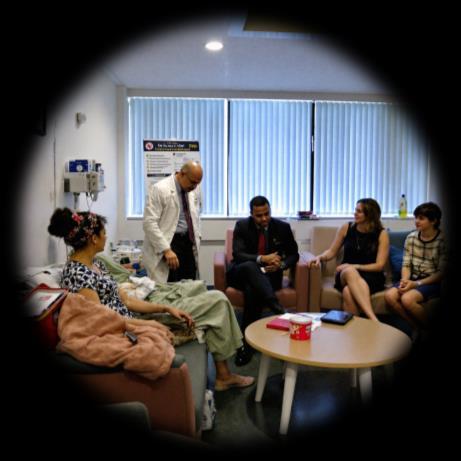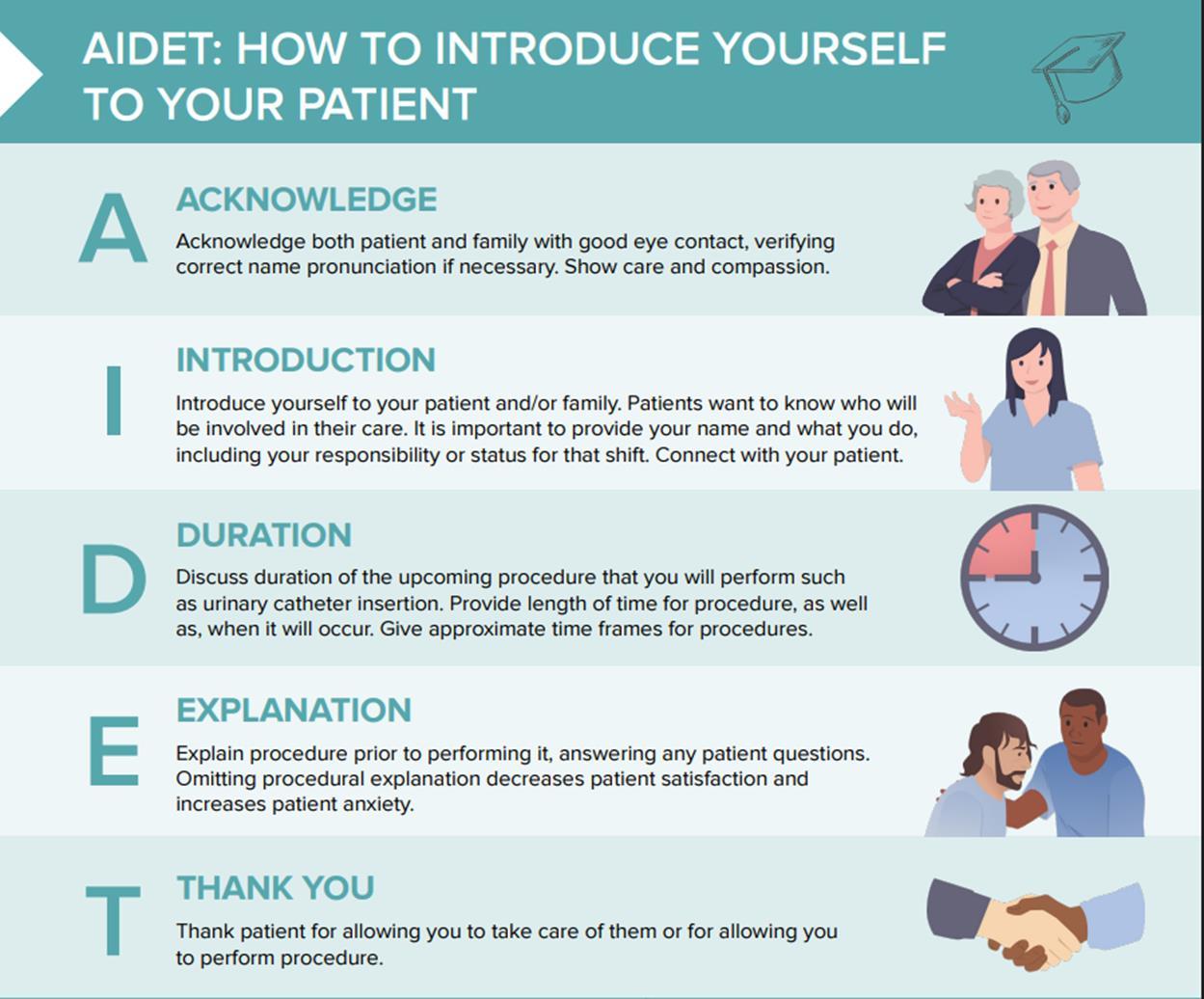




Eric Barna MD
Professor
of Medicine
and Medical Education
Director of Education, Division of Hospital Medicine
Director of Education, Mount Sinai International
Acting Internship Clerkship Director
Associate Residency Program Director, MSH
Director/Founder, CHAMP
Understand that key foundational skills will drive early success in your intern year and elements such as organization, communication and prioritization will cultivate a mindset of growth and confidence.
Establish a structured workflow, navigate clinical responsibilities with intention, communicate with clarity and approach each task with ownership, curiosity and a commitment to continual improvement.

Empowered, grounded and ready to meet the challenges of internship with clarity and confidence- knowing that you belong here, that growth takes time and that you aren’t alone.



Reflect for a moment on your first week as an intern. What’s one core skill you wish you had truly mastered to navigate the early days of internship?

❑ Plan your schedule across daily, monthly, and yearly timelines to stay organized and anticipate responsibilities.
❑ Structure each day to include essential activities such as pre-rounding, rounding, documentation, and teaching sessions.
❑ Use downtime wisely by tackling quick tasks like checking results, placing orders, or looking up information.
❑ Prioritize breaks—attend noon conference, stay hydrated, eat, and take short mental resets to maintain focus.
❑ Leverage technology with tools like EMR shortcuts, to-do apps, efficient note-taking systems, and platforms like Notion for personal organization.
Standardized Morning Pre-Rounds
Develop a consistent chart review system for every patient.
• Review notes, vitals, labs, and imaging in the same order
• Document key findings for rounds
Use EMR printouts instead of rewriting all data.
• Highlight abnormal values on printouts
• Create dedicated space for notes and tasks
Address high-priority items promptly after rounds.
• Follow up on orders and consults
• Complete notes during afternoon downtime
Ensure all loose ends are tied up before signing out.
• Update sign-outs with current patient status
• Complete all documentation and handoffs Signout
What’s your strategy for setting priorities when starting your day on the wards?

Triage by urgency:
See sickest patients first, then discharges, then everyone else. Drop everything for unstable patients.

Maintain a checklist:

Start time-consuming processes early:
Call consults and order studies first thing. Begin discharge paperwork in the morning.

Use a folded patient list with checkboxes. Add follow-up tasks for everything you order.

Adapt to setting:
In clinic, focus on the current patient while remaining conscious other interruptions i.e. incoming labs, front desk interruptions etc.

Balance urgent vs. important:
Address critical clinical issues immediately. Defer routine administrative work to calmer moments.





Document current condition, active problems, and to-do items. Update in real time as situations change.
Follow I-PASS or SIGNOUT mnemonics. Consistent structure prevents critical omissions.
Communicate Tasks Explicitly
Specify exactly what needs to be done with if-then statements. Avoid vague instructions.

Anticipate
Predict potential problems and provide response plans. Prepare night team for foreseeable events.
Prioritize Face-to-Face Handoffs
Find quiet locations. Minimize interruptions. Encourage questions and read-backs for clarification.

Know when to write notes immediately versus when to wait for more information. Prioritize urgent documentation while balancing other responsibilities.
Create personal templates and macros for common scenarios.
Develop a system that works consistently across rotations.
Avoid redundancy and copy-paste errors that can lead to mistakes.
Update information rather than duplicating outdated content.
❑ Document same-day: Write notes while details are fresh— ideally after rounds or immediately post-visit.
❑ Discharge = Document: Complete discharge summaries as soon as DC becomes imminent.
❑ Use templates wisely: Leverage EMR shortcuts to save time but always update and tailor to the current patient.
❑ Be clear and concise: Focus on clinical reasoning and the plan—skip unnecessary fluff.

❑ Develop a workflow: Pre-chart, when possible, write in quiet areas, and proofread carefully.
❑ Close the loop: Ensure notes match orders, update problem lists, and communicate the next steps clearly.



“To effectively communicate, we must realize that we are all different in the way we perceive the world and use this understanding as a guide to our communication with others.”
— Tony Robbins







❑Introduce Yourself and Build Rapport
Set a collegial tone by greeting team members, learning names, and showing consistent courtesy.
❑Value Team Expertise
Seek and respect nursing assessments and social work recommendations—collaboration improves patient safety.
❑Keep Everyone Informed
Communicate treatment plans and rationale clearly, especially when changes occur.
❑Go Beyond the EMR
Speak directly (in person or by phone) about urgent or nuanced issues—don’t rely solely on notes or orders.
❑Loop in Case Management Early
Engage social workers and case managers at admission, not just at discharge.
❑Share Social Context and Goals
Provide details about a patient’s home life, functional status, and care needs to support safe discharge planning.
❑Respond Promptly and Respect Roles
Prioritize requests from the care team and maintain a tone of mutual respect and partnership.
Team Communication
"Coming together is a beginning. Keeping together is progress. Working together is success."
— Henry Ford

•Start with a Huddle: Open each shift by aligning on patient assignments, workflow, and priorities.
•Keep Lines Open: Update teammates during the day—cover each other and communicate availability.
•Prioritize Safe Handoffs: Use a structured approach
•Be aTeam Player: Offer help when able, ask for help when needed, and promote fairness in task sharing.
•Resolve Tension Respectfully: Address issues directly and constructively—don’t let conflict fester.
•Share What Matters: Keep your team in the loop on clinical updates, consultant input, and key family discussions.
•Support and Celebrate: Recognize each other’s efforts, provide emotional support, and build team morale.

Use simple language. Avoid medical jargon.
Explain next steps. Provide realistic timeframes.


Acknowledge concerns. Show empathy for difficult situations.
Be brief but thorough. Focus on what matters most.
Tip: Update the Primary Care Provider


❑ Recognize the Role Shift: Patient care comes first—but you're still in training. Expect variability in daily balance.
❑ Learn on the Job: Every task—notes, orders, consults—is a chance to build clinical skills. Be curious and ask questions
❑ Protect Learning Time: Attend conferences and didactics
❑ Study Strategically: Carve out 15–20 minutes a day to review topics tied to your patients.
❑ Track Knowledge Gaps: Maintain a “look-up list” to revisit questions you couldn’t answer in the moment.
❑ Use Light Rotations Wisely: Read and prep during slower rotations or days off—balance rest and review.
❑ Embed Learning in Service: Treat daily work as clinical education—every patient is a teaching case.
❑ Set Realistic Goals: Aim for consistency, not perfection. Small, steady efforts build deep knowledge over time.

You are not alone
Everyone feels overwhelmed. Reach out to peers and mentors.

Ask for help early
Seeking guidance shows strength, not weakness.

Progress over perfection
Growth happens gradually. Celebrate small wins.

Recharge frequently
Take microbreaks. Hydrate, breathe, reset your mind.



❑ Personalized Support: Offer individualized guidance on wellness, workload, and the transition from medical student to resident.
❑ Career Development: Help interns explore career goals, subspecialty interests, and navigate early decisions like electives and research.
❑ Advocacy & Mentorship: Serve as a trusted sounding board and advocate within the program for academic, professional, or personal needs.
❑ Progress Monitoring: Provide structured check-ins to assess clinical performance, milestone achievement, and goal-setting.
❑From “I should know this” to “I’m here to learn this”
❑Reframing feedback as fuel
A growth mindset, coined by psychologist Carol Dweck, is the belief that abilities and intelligence can be developed through effort, learning, and persistence. For new interns, embracing this mindset can shape their entire trajectory in training.

❑Embracing struggle as part of success
❑Continuous self-improvement over comparison

❑ Punctuality & Preparedness:
Arrive on time for rounds, sign-out, and teaching.
❑ Follow-Through & Reliability:
If you say you’ll do it — do it. Communicate proactively if something is delayed.
❑ Respectful Communication:
Treat every team member with courtesy — from transport to consultants.
Do not forget the importance of email etiquette.
❑ Ownership & Accountability:
Take responsibility for your actions and patients. Admit errors without excuses.
❑ Confidentiality & Boundaries:
Never discuss patients in public spaces. Be mindful of tone and content in group texts or chats.
❑ Feedback Receptiveness:
Seek feedback regularly and receive it with curiosity, not defensiveness. Reflect and adapt.
❑ Professional Appearance & Demeanor:
Dress appropriately for your clinical setting. Stay calm and composed.


Clinical Curiosity & Commitment to Learning
Asks questions, seeks feedback, and shows initiative in expanding medical knowledge.
02 Strong Work Ethic & Dependability
Follows through on tasks, shows up prepared, and takes ownership of patient care.
03 Team Player Mentality
Communicates effectively, collaborates across disciplines, and supports co-residents.
04 Accountability and Professionalism
Admits mistakes, learns from them, and maintains a respectful, ethical presence.
05 Empathy and Compassion
Demonstrates humanism in patient interactions and supports families during difficult moments.
06 Clarity in Communication
Speaks clearly to patients, writes accurate notes, and gives thorough sign-outs
07 Organizational and Time Management Skills
Stays on top of multiple patients, plans ahead, and avoids letting things fall through the cracks.
08 Self Awareness and Openness to Feedback
Manages stress, knows when to seek help and welcomes constructive feedback.





Secure medical licenses, permits, vaccinations, NPI numbers, and DEA registration early.
Arrange Living Logistics:
Organize your housing and plan reliable transportation for on-call shifts.
Build Financial Foundation:
Create a budget, understand benefits, and explore loan repayment options.
Establish Wellness Habits:
Start consistent sleep routines, meal planning, and exercise schedules before demands intensify.
Take
Disconnect completely before starting. Your future self will thank you.


Understand that key foundational skills will drive early success in your intern year and elements such as organization, communication and prioritization will cultivate a mindset of growth and confidence.
Establish a structured workflow, navigate clinical responsibilities with intention, communicate with clarity and approach each task with ownership, curiosity and a commitment to continual improvement.
FeelEmpowered, grounded and ready to meet the challenges of internship with clarity and confidence- knowing that you belong here, that growth takes time and that you aren’t alone.

"The life so short, the craft so long to learn."